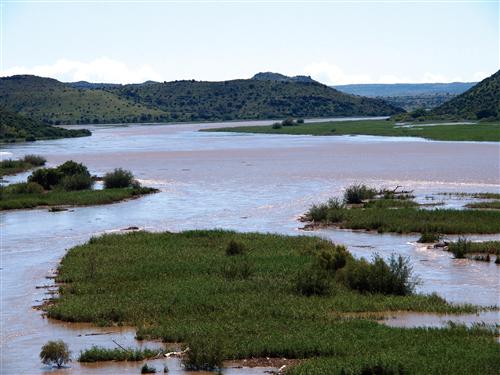Instream ecological flow reserves were traditionally estimated based on hydrological and biological characteristics, rather than economic criteria. Recently however, there has been a shift in the focus of streamflow reserve estimation to its economic criteria and benefits (i.e. agricultural and biodiversity valuation as a measure of welfare impacts associated with modified streamflows) (Matete 2004).
Box :The Valuation of Ecological Systems and Services
Valuation of ecological systems and the services they provide is premised on two distinct, but complementary valuation paradigms: anthropocentric and ecocentric paradigms. The anthropocentric valuation paradigm, also known as the utilitarian approach, has its foundation in neoclassical welfare economics. According to this approach, an ecological value is estimated from the utility humans derive from using ecological services. […] It then follows that the basis for deriving measures of economic value of the environment and goods and services it provides is their effects on human welfare (Freeman 1993) .Contrarily, humans can value the environment and its services for their pure existence or intrinsic value. This form of valuation is purely premised on altruistic and ethical or ecocentric concerns not directly related to satisfaction of material human needs.
Source: Adapted from Matete 2004

The Orange-Senqu River at Bethulie, South Africa.
Source:Kruchem 2011
( click to enlarge )
Assigning a Value to Water
In southern Africa, until recently, water has largely been regarded as a free good with undefined property rights. This view, combined with the fact that in many countries water prices are highly subsidised, has resulted in the unsustainable use of water resources (Hambira and Gangdidzanwa 2006). Monetary accounts assign a value to the flow and stock accounts through pricing, costs, charges, tariffs, etc. as a way of ensuring that the population is conscientious of water use and the overall costs associated with water use. The assigned monetary value should be low enough to allow for basic needs to be met but high enough to discourage unsustainable use and waste. “Water Pricing can be described as assigning water its true value in order to reflect its scarcity, supply costs and environmental damage” (Hambira and Gangdidzanwa 2006). By assigning a value to water the goal is to recover the costs associated with its delivery, planning and any environmental damage.
On the following pages the economic valuation of water in Botswana, Namibia and South Africa is shortly discussed. In Lesotho no such valuation is taking place until today.
